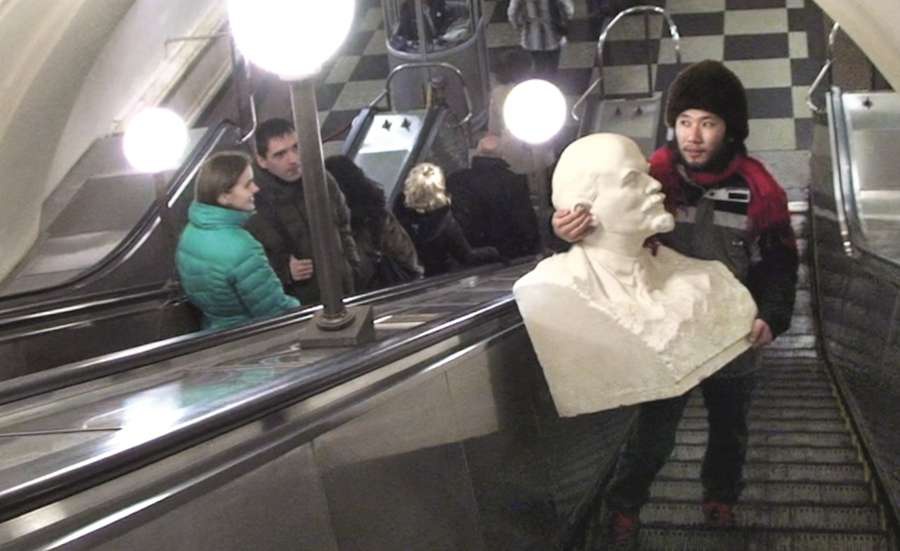07 September 2021 The exhibition is a topical overview of the projects of Yoshinori Niwa within the triangle of money-politics-ecology, which also characterises the artists' performative social interactions in public space.

Since we cannot change the past course of history, we can perhaps at least break the spell of it. According to the Japanese artist, performer and activist Yoshinori Niwa, a certain “rehabilitation” of the relationship between history as domain (something that belongs to us or we consider to own personally) and the predominant public historical narrative (which utilises culture, education, politics, the law, communication etc. to shape our current historical position), is necessary. As Niwa puts it, the power relations between these positions of domain and domination are somehow ill and in need of rehabilitation.
The exhibition is a topical overview of the projects of Yoshinori Niwa within the triangle of money-politics-ecology, which also characterises the artist's performative social interactions in public space. Niwa often voluntarily exposes himself to unusual or unproductive social situations to cast light on their perceived normality, emptiness and the absurdity of established systems and identities. He documents his actions with a video camera revealing the video documents with self-explanatory titles. The MONEY aspect is represented by the works Exchanging Between Turkish Lire and Euros Until There is Nothing Left (2011) and Releasing Euro Banknotes into the Danube River and Looking for them as Lost Items in the Countries Downstream (2020).
The neon sign with the title of the 2007 book by Japanese former prime minister Shinzo Abe, Towards a Beautiful Country, sheds light on the second aspect of Niwa's work: POLITICS. Through historical revisionism and nationalism, the book presents a vision for a remilitarised Japan. Two projects focusing on private space realised in Moscow and in Graz, deal with two of the strongest ideological totalitarian regimes of the 20th Century and are set in opposition to one another. Both works act as a sort of intrusion into the historical political privacy and an opportunity to rediscover their/our past in our private area and dispose of it. A three-channel video Looking for Vladimir Lenin at Moscow Apartments (2012) is set across from Withdrawing Adolf Hitler from a Private Space (2018), where the artist in Austria and Germany used newspaper ads to engage people to finally dispose of used Nazi uniforms and similar memorabilia at a special clothing donation bin in the city. The issues of mass production of unnecessary products that results in a large amount of waste with no destination and ecological catastrophe profiteering are main topics of the videos Going to San Francisco to Dispose of My Garbage (2006) and Selling the Right to Name a Pile of Garbage (2014).
Multiple layers of the triangle money-politics-ecology intertwine through all selected works, but are perhaps the most tangible in two videos of the same title, Transporting Puddle A to Puddle B. The first one from 2004, in which the artist can be seen drinking from a puddle in former East Berlin, transporting it over the boundary of the Berlin wall and then spitting it out in former West Berlin. After the nuclear catastrophe of 2012, the artist repeated the action, transporting a Tokyo puddle into the contaminated Fukushima.
As Niwa tackles ecology, local political heritage, and current pressing social issues as a resident artist, he is often asked why he deals with topics that do not concern him as a foreigner. The answer might be in the dilemma: To whom does history belong?

